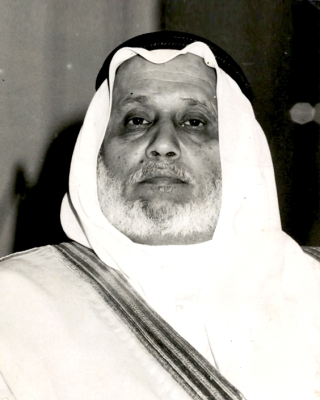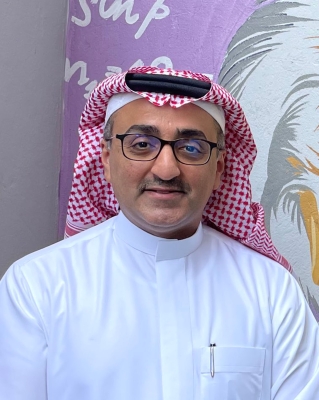
Mohammed Abdu Yamani (1940-2010) was a writer and thinker, recognized as one of the leading intellectuals in the Islamic world. He served as the Minister of Media in the Kingdom of Saudi Arabia in 1975, during his mid-thirties, making him one of the youngest Ministers of Media globally and the first Saudi Minister of Media to be appointed at such a young age. Prior to this, he was an undersecretary of the Ministry of Knowledge and a founder of King Abdulaziz University, where he also served as a former director.
During Yamani's tenure in the media, Saudi television appeared in color for the first time, the second Saudi channel was established in English, and he received several medals and honors, most notably the King Abdulaziz Sash.
Mohammed Abdu Yamani's upbringing
Mohammed Abdu Yamani was born in Makkah al-Mukarramah to a family interested in Islamic sciences. He grew up in his parents' house, and he frequently visited the Grand Mosque. He learned in the Kuttab (a traditional school), memorized the Quran, and learned about religious and linguistic sciences. Then he began his formal education at al-Falah School, where his passion for literature, language, and culture first came to light.
Education of Mohammed Abdu Yamani
Mohammed Abdu Yamani did not get the opportunity to choose the literary branch at high school due to the lack of students wishing to enroll in it, so he took up the scientific one. When he graduated, poverty and adverse conditions did not allow him to pursue his studies at the University of Cairo.
After graduating from high school, Mohammed Abdu Yamani applied to study geology at King Saud University in Riyadh City. In 1959, he moved to the capital to begin his bachelor's degree, joining a small cohort, as university education was not widely pursued at that time. It was during this period that his talents flourished, and he became involved in various activities. He was an active participant in theater, scouting, public speaking, and other student activities.
Mohammed Abdu Yamani was one of the elite distinguished students chosen to teach at the university. In the early 1960s, he was chosen by a supreme directive along with his colleagues Ahmed Zaki Yamani, Abdulwahab Abdulwaseh, and Hisham Nazer, as they enjoyed meritorious qualifications. He worked as a teaching assistant for one year at the university before he got a scholarship to the United States of America to pursue his post-graduate studies.
Mohammed Abdu Yamani moved to study in New York City, and joined Cornell University in 1964, where he got a master’s degree in 1966 and a PhD in 1968 for his thesis on “Mineral Resources in the Kingdom of Saudi Arabia.” During his studies at the university, he was chosen as president of the Students Association. He organized several religious and literary ceremonies.
After completing his PhD, Yamani resumed his work at King Saud University. In 1972, he was appointed Undersecretary of the Ministry of Knowledge (currently the Ministry of Education). He wrote and conducted numerous investigations in various newspapers and periodicals and also hosted a television program. Later, he was selected as the Director of King Abdulaziz University in Jeddah City, where his hard work contributed to the institution's growth and recognition as one of its founders. His achievements made him a candidate for a ministerial position, and in 1975, King Khalid Bin Abdulaziz Al Saud appointed him as the Saudi Minister of Media when he was only thirty-five years old.
Mohammed Abdu Yamani and the Ministry of Media
During his tenure as Minister of Media, Yamani led a transformative shift for Saudi television, renewing and upgrading broadcasting equipment and expanding the television network to cover the largest area possible of the Kingdom's provinces. In 1976, he introduced color broadcasting, ending the era of black-and-white television, after signing an agreement with a French company and sending technicians to France for training on the new system. He also established a second Saudi channel that broadcasted in English.
Mohammed Abdu Yamani expanded the role of Saudi media by incorporating education, awareness, and knowledge dissemination alongside entertainment. He drew inspiration from leading global institutions. During his tenure, Saudi television began broadcasting prayers from the Two Holy Mosques, including the Tarawih prayers during Ramadan. There was also a focus on featuring religious scholars and thinkers in scientific and cultural programs, such as those presented by Ali al-Tantawi and Mohammed Metwally al-Shaarawy.
The Grand Mosque Incident during Mohammed Abdu Yamani's tenure
Mohammed Abdu Yamani attributed success to his Ministry of Media when he was able, under his guidance, to allow a media team to enter the hall of the Grand Mosque during the Grand Mosque seizure in 1979. The team captured and broadcasted the unfolding events with both sound and visuals, ensuring the Islamic world stayed informed and leaving no way to controversy. His ministry worked in cooperation with the Ministry of Foreign Affairs to deal with false information about the seizure that was published by some international media and to prevent any use of inflated headlines and phrases offensive to the local culture and the national unity of the Kingdom.
Mohammed Abdu Yamani was recognized as a minister who provided guidance and mentorship on handling controversial media matters. He maintained a close relationship with both King Khalid Bin Abdulaziz and King Fahd Bin Abdulaziz, accompanying them on official visits and delegations, and at Arab and Islamic summit conferences.
Works and writings by Mohammed Abdu Yamani
After leaving the Ministry of Media in 1983, Mohammed Abdu Yamani turned to humanitarian work and intellectual and literary writing. He authored about fifteen books in various fields including prose, novels, prophetic biography, education, intellect, and geology. Some of his publications are the novel Homeless without Sin, Teach Your Children to Love the Prophet of Allah, The Future of the Mineral Wealth in the Kingdom, The Hoopoe Passed by Here, The Critical Equation in the Life of the Islamic Nation, Scientific Views on Space Invasion, A Girl from Hail, The Sea Surgeon, and Economic Geology and Mineral Wealth in the Kingdom.
Honors and awards received by Mohammed Abdu Yamani
Mohammed Abdu Yamani received several honors and awards for his humanitarian works around the world and his pioneering initiatives, such as the King Abdulaziz Sash, the French National Order of Merit, the Order of the Star of Jordan awarded by King Hussein Bin Talal, Order of Isabella the Catholic awarded by King Juan Carlos, and other honors from the governments of Indonesia, the United Arab Emirates, and Mauritania. He was also granted membership and presidency of dozens of associations and was a founding member of the Organization of the Islamic Cooperation, a member of the Council of Writers and Friends of the Heart, and the Khayrocom Association for Quran Memorization.
Related quizzes
Related articles


